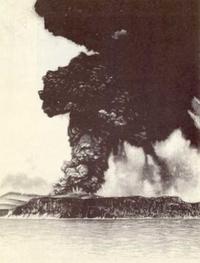Stand Back, Please. A Little Perspective Here, Folks.
One of my favorite therapists once asked politely, "so, Dymphna, when did you realize that reading was a neurotic escape?" And then she leaned back and looked at me expectantly with that benign half-smile she'd learned at acting school (she was "studying for the stage" when she was suddenly widowed and decided to hie herself off to medical school. I guess there's more than one way to grieve. Must remember to tell Cindy Sheehan). Neurotic? "NEUROTIC?" NEUROTIC ESCAPE? Oh Lord.
Of course, she was right. She just didn't know that I didn't know that about myself. I mean, it's not the only reason I read. I'm also looking for the key to happiness and the secret of the universe, but in my heart of hearts I know they won't be found in an Elmore Leonard novel or on the back of a cereal box. On the other hand, have you ever seen anyone who could write dialogue more perfectly than Leonard? Have you ever? It is as though he is making notations for music. Admittedly, the sounds flowing forth from the mouth of a Detroit small-time hoodlum are not exactly the music of the spheres, but still Leonard gives such people seat and voice in the world of the living simply by paying close attention to what they say. For that he is worthy of praise.
I should be outside on this perfect September afternoon, clearing out some of the brush that has grown up through the mountain laurel at the edge of the woods. I should be clearing out the clutter in the kitchen and putting the pot roast on so it will be ready when a certain starving Baron comes through the door after his long trek from where he makes his livelihood to his front door.
But I'm doing neither good deed. Nor am I writing thank you notes or folding laundry or...thinking good thoughts. I am neurotically escaping. Thank you, Dr. Weeks, for the truth of it. Who was it that said "the truth shall make you free, but first it shall make you miserable"? Probably someone in therapy.
James Lileks made me read this. The Baron found a mention of Krakatoa in a Lileks’ column -- I cannot for the life of me keep his various writings separate. Like Mark Steyn he is pro…(prolifigate? No, that's not it. Pro…oh I hate it when the words start to go. That word which means there’s a lot of it…proliferous? Good Lord. That’s not even a word. I don’t think. Prolific! That's it)-- as I was saying, like Mark Steyn, Lileks is a prolific writer. There.
The Baron feels a connection to Lileks ever since he found one of his books in a little junk shop by the side of the road in Alpha,VA. In fact, that junk shop by the railroad tracks is all there is to Alpha. He brought the book home and chortled his way through it.
That was years ago. Imagine his delight when suddenly he had access to James Lileks online. Talk about a little kid in a toy store. An Irishman in a pub. A bishop in a belfry. The Baron was in his element, reading Lileks every day. It may be the secret of his sunny disposition. While he’s always been the benign sort, the last few years — since the advent of the internet — have made him positively cheery. I think it has much to do with being able to read Lileks to his heart’s content.
So. Lileks remarks that he’s reading Krakatoa , thus setting off the following events: the Baron goes to Amazon’s used book section and back comes the book in the mail.
 Whatever the Baron is reading always looks way better than what I’m reading. The same thing goes for his glass of lemonade or wine. So, of course, I picked up the book. I mean he wasn’t going to start reading it for weeks since he had two magazines to catch up on and was in the middle of an Ian Rankin novel. The Baron is an orderly reader while I am a greedy one. In case you didn’t get that when you heard about my lemonade habits, now you know. I suffer a lot from intellectual indigestion. Even now there is a tottering pile of books on my side of the bed. Make that two piles, one somewhat less tottery.
Whatever the Baron is reading always looks way better than what I’m reading. The same thing goes for his glass of lemonade or wine. So, of course, I picked up the book. I mean he wasn’t going to start reading it for weeks since he had two magazines to catch up on and was in the middle of an Ian Rankin novel. The Baron is an orderly reader while I am a greedy one. In case you didn’t get that when you heard about my lemonade habits, now you know. I suffer a lot from intellectual indigestion. Even now there is a tottering pile of books on my side of the bed. Make that two piles, one somewhat less tottery.There’s not much in the book about the author, except that he’s a “New York Times Bestseller” writer and he has an impressive list of other tomes on the back page. One of these is The Fracture Zone and it is Simon Winchester’s —for that is his name — “personal account” of his return to Kosovo during the war. He also has books on tape. For those of us who on occasion travel long distances from the Middle of Beyond into Civilized Spaces, some of these books look most intriguing. The Map That Changed The World, for example.
I do wish books on tape weren’t so expensive. One feels guilty buying so many used books and tapes when authors depend on our largesse for their livelihood. Too bad a small royalty cannot go their way each time a book changed hands…but often it’s buy it used or go without, whether it’s books or cameras or the printer I’m trying to find for the Baron’s Boy so he won’t have to trek over to another hall to print his papers. Now that he is working, he has more money than time, which means getting his laundry done and having a printer to hand. Working part-time is a great way to learn how to manage money and time and to figure out which you have more of in any given situation.
Krakatoa, The Day the World Exploded: August 27, 1883 is splendid so far. Mr. Winchester gives you lovely, delicious pages of foreground — oh, I just discovered in a front page that he’s a geologist. Rather good-looking chap. Yum — that lead us slowly to the denouemont, the chapter he calls “The Unchaining of the Gates of Hell.” Here is where it starts to get scary:
“He walked across to the observatory, noticing immediately that the needles and pens suspended by their cocoon threads on his magnetic declinometer were ticking and trembling violently — not in the usual side-to-side sweeps that one might expect from an earthquake, but in a series of buzzing up-and-down motions that did not register properly on the paper rolling from the drum. The more he thought about it, the more he realized something odd: the vibrations were not so much being felt through his feet, as if they had emanated from somewhere deep in the earth; they were in fact being felt in the air. True, there were ground tremors and buildings were shaking — this was self-evident. But most of the shaking was coming through the very atmosphere itself. And vibration of this kind was the very particular hallmark of an erupting volcano, not of the subterranean shaking of an earthquake.”Wow. That’s as far as I’ve gotten — page 161 of about 400 pages. There are many wonderful contemporary illustrations, including one of the telegraph line being laid from a ship off the coast of Ireland (just to pick one at random), and an illustration from 1680 when Krakatoa was acting up back then. But the big bang was not to happen until 1883.
As far as I know, the world never got around to shortening this to 8/27, or 8/83. Back then, there was more time to say the whole thing. And we have yet to see the like for sheer destruction:
The island was destroyed and nearly 40,000 people were killed. The impact was so great that seismographs in Washington, USA, went haywire, London witnessed stunning sunsets and ships sailing in the Red Sea were covered in ash.When I get to the part where the volcano causes the whole world to miss a summer, I’ll quote some more. Far better, though, is you should get the book. Or the tape, if it exists and you have miles to go before you sleep.
Do try Krakatoa, though. It will give you a break from Katrina and perhaps some perspective. I haven't gotten yet to the part where people are blaming whomever is in charge, but I'm sure it's in there, dismally the same.
People die and always, someone should have prevented it. And if we choose God as the OIC who shoulda done something, why we can get real mad and stomp our foot and decide not to believe in such a bad deity.


0 Comments:
Post a Comment
<< Home